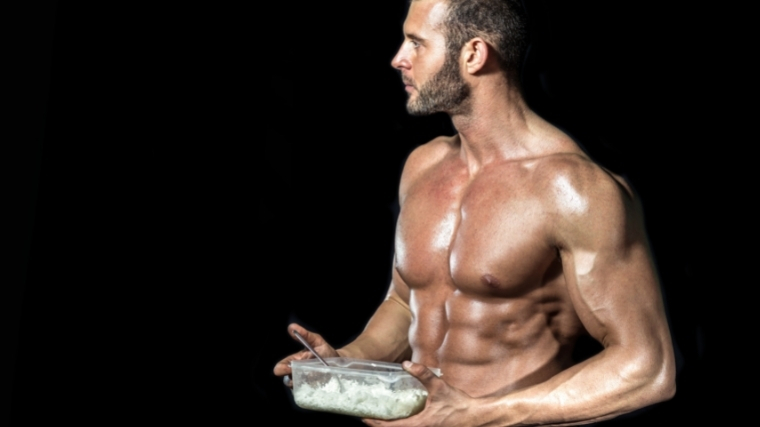It’s bulking season, baby. With summer — and temperatures — winding down, you might be transitioning from a cut to a bulk. A renewed focus on building muscle and increasing strength requires extra calories, which begs the question: how many calories should you eat?
- A 2019 paper, co-authored by pro bodybuilder and BarBend expert Dr. Eric Helms, lights the way. (1)
We’re going to break down the findings of this paper and give you some calorie and protein intake recommendations for bulking season.
Bulking: How Many Calories Should You Eat?
If you’re bulking, you probably know this already: To maximize muscle growth, you need to consume more calories than you need. More isn’t always “more,” so we need to get specific about the optimal range.
The paper we’re looking at today is titled, “Is an Energy Surplus Required to Maximize Skeletal Muscle Hypertrophy Associated With Resistance Training,” by authors Slater et al.
- The authors looked at different studies involving overfeeding and how energy surpluses (that’s extra calories beyond what you need to maintain your weight) affect muscle and fat gain.
In the spirit of bulking season, we’re going to serve dessert before dinner. After discussing a wide array of scientific evidence, the authors of this paper recommend starting with an energy surplus of “1,500 to 2,000 kilojoules per day.”

Math sucks, so we’ll do the conversion for you. 1,500 to 2,000 kilojoules works out to be 358 – 478 extra calories per day. The authors regard this range as conservative and suggest “using changes in body composition and functional capacity to further personalize dietary interventions.”
- In plain English, they’re saying you should keep an eye on how quickly you gain weight and adjust as needed.
- On paper, a 350-500 calorie surplus should create somewhere between .6 and 1 pound of weight change per week.
[Related: Best Pre-Workout Supplements]
Macronutrients for Bulking
Protein, carbohydrates, and fat, the three main macronutrients, provide the calories you need when you’re bulking. You need specific amounts of each to gain mass and to ensure healthy bodily function.
Slater et al. touched on macronutrients for bulking in their analysis. Here are their main points, summarized:
- Reaching a bulking surplus by consuming extra protein won’t prevent you from gaining fat, so don’t try to outsmart your body that way. Stick with the contemporary industry standard of 1.6 to 2.2 grams of protein per kilogram of body weight. (2)
- Extra carbs and dietary fat both lead to fat gain if you’re in a surplus. The authors suggest piling on the carbs to avoid any performance-related impairments to your training.
- Dr. Helms has recommended elsewhere that bodybuilders in the off-season should get 20 to 35% of their calories from dietary fat to ensure healthy hormone function. (3)
[Related: Best Creatine Supplements]
More Research Content
- Study Answers: Is Walking Enough to Prevent Obesity & Other Diseases?
- Full-Body vs. Split Workouts for Fat Loss: This Study Declares a Winner
- Study Reveals the Hidden Danger of High-Rep Training for Hypertrophy
References
- Slater GJ, Dieter BP, Marsh DJ, Helms ER, Shaw G, Iraki J. Is an Energy Surplus Required to Maximize Skeletal Muscle Hypertrophy Associated With Resistance Training. Front Nutr. 2019 Aug 20;6:131. doi: 10.3389/fnut.2019.00131. PMID: 31482093; PMCID: PMC6710320.
- Stokes T, Hector AJ, Morton RW, McGlory C, Phillips SM. Recent Perspectives Regarding the Role of Dietary Protein for the Promotion of Muscle Hypertrophy with Resistance Exercise Training. Nutrients. 2018 Feb 7;10(2):180. doi: 10.3390/nu10020180. PMID: 29414855; PMCID: PMC5852756.
- Iraki J, Fitschen P, Espinar S, Helms E. Nutrition Recommendations for Bodybuilders in the Off-Season: A Narrative Review. Sports (Basel). 2019 Jun 26;7(7):154. doi: 10.3390/sports7070154. PMID: 31247944; PMCID: PMC6680710.
Featured Image: @cbum / Instagram